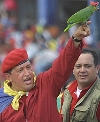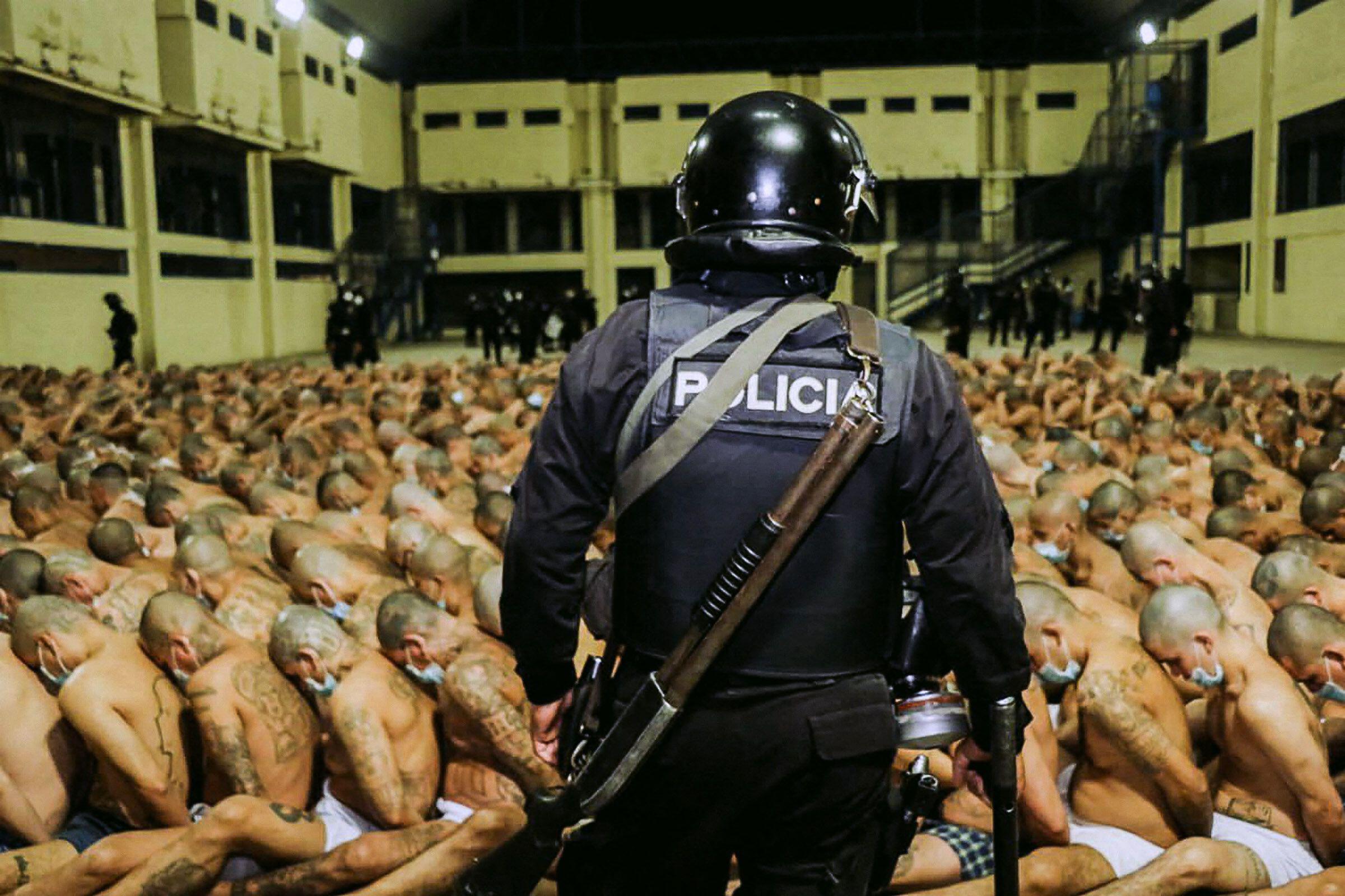
Hugo Chavez’s defeat in the recent constitutional referendum came despite massive media manipulation, writes Daniel Duquenal
On December 2 Venezuela held a referendum to modify 69 articles of its constitution. The goal was to give President Chavez the means to remain in office for as long as he could get away with. But the narrow No vote gave the Chavez administration an expiration date: 2013. The reform proposal was overtaken by secrecy and misinformation. It all started early in 2007, with the naming of a special commission sworn to secrecy in its debates.
On August 15 the president himself read the 33 first targeted articles. Public discussion was short. The campaign muddled the issues. When first polls showed a certain apprehension about the ‘reforma’ the chavismo [pro-Chavez parties] decided to make the contest a plebiscite on Chavez, with all the implications in a country where the state has developed an overwhelming media system at its service.
Since the closing of RCTV last May there is no network with national open signal covering the whole country that voices the concerns of the opposition: Venevision and Televen are willingly muted on many issues. The only critical networks left are RCTV only on cable (which less than 30 per cent of the Venezuelan people have access to) and Globovision with open signal only in Caracas and Valencia.
Meanwhile, the government has VTV and Vive with nationwide open coverage. It also controls the only radio network that covers all the country, RNV. There is also ANTV, Telesur and many local TV and radio stations (YVKE). TVes, built over the seized frequency of RCTV has failed to deliver as a public service free of political partisanship. All are continuously positive about government propaganda.
This time, free of international electoral observers, the government moved decisively in the 24/24 propaganda system. A study by the UCAB and Goteborg University found out that during their observation of three weeks of campaigning in VTV the No viewpoint received next to no coverage. Even Globovision, openly campaigning for a No vote, devoted about 25 per cent of its airtime to material related to the Si option. One telling moment came during an anti-reforms rally organised on the Bolivar Avenue by the student movement. It was a huge success that made it to the front page of the New York Times. But watching VTV one would have never known it. The next day Globovision showed most of Chavez’s speech on Bolivar Avenue.
The Venezuelan electoral board, CNE, has been active in censoring campaign advertisement, mostly the opposition. A more pernicious censorship was the banning of opinion polls one week before the vote, in the media and papers. This of course has not stopped them from circulating. But the worst case was on Friday 30 when Chavez during his last campaign appearance mentioned polls without any sanction from the CNE, forcing Globovision to interrupt its coverage lest CNE sanction Globovision! The CNE double standards give rise to dangerous censorship precedents for future elections.
The most scandalous mix of censorship and outright lies came on election day. Even though filtering of any exit poll is strictly forbidden, Reuters received the results of three pro Chavez pollsters from governmental officials ,and in a mad race for the scoop announced that the Si had won by up to six points. The Reuters report, promptly picked up by many newspapers, created a crisis in Venezuela as the CNE unnecessarily delayed announcement of the results until eight hours after polls closed, an incredible situation for an automated voting system. Eventually Reuters has been placed in the embarrassing situation of recognising that it made a mistake.
Finally, the secret ‘negotiations’ of election night while the government apparently pondered whether to recognize the results were leaked. This in turn generated quite a scandal through the week when a visibly upset Chavez tried to counter with a failed press conference where the No camp was compared to excrement. It was extremely worrisome to see the army commanders and the president of the Republic attack journalists such as Hernán Lugo Galicia, of the newspaper El Nacional for doing their job of reporting, while refusing to account for the inexcusable delays in publishing the results, let alone recognising the extraordinary abuses committed by the government during the electoral campaign.
Even though the No victory temporarily limits worse restraints on liberties of expression and information, these remain pretty much a concern in Venezuela. During the campaign, Globovision was severely attacked and accused of incitement to violence, without any evidence. The consequences came last week when yet another Globovision worker was beaten up by the Caracas police corps. As it has been the case for other networks, the attacks on Globovision aim at creating a climate of self censorship inside this network, just as it happens now in Venevision, Televen, regional TV and radio and some of the press. It is a subtle form of censorship, but very effective and one that will have a deleterious effect on democratic discourse. And clearly this form of censorship does not rule out more direct action.
Venezuela needs to be closely monitored, as the Chavez administration, now in an unusual defensive situation might be tempted to increase its censorship tendencies. It is a tribute to the democratic bent of the Venezuelan people to have managed to resist the Si propaganda in spite of all the governmental media advantage and pressures.





